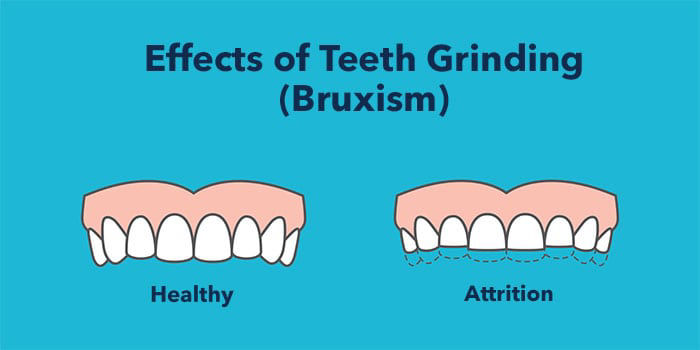
How can chiropractic care fix my bruxism (teeth grinding)?
Have you noticed that you wake up with a sore and tight jaw or fascial pain? You might be grinding your teeth while during sleep. It is estimated 1 in 10 people grind their teeth in their sleep. So what is bruxism and how chiropractic care may help with your teeth grinding?
Chiropractors are trained to deal with a host of problems in the pursuit of helping your body to function at its very best. This includes the temporal-mandibular joint or the TMJ. You never know what issues you may be dealing with that have a root cause in the musculoskeletal system; that is something chiropractors are trained to recognize. If you suffer from bruxism, the chiropractor may be able to assist – and here’s how.
What is teeth grinding (Bruxism)?
Bruxism is simply teeth grinding. It usually occurs at night and involves clenching the jaw as the teeth get ground back and forth. It’s an incredibly common sleep disorder. If the person grinds or clenches their teeth during the night, it is called sleep bruxism. However, if the person grinds or clenches their teeth during the day, it is called awake bruxism.
Grinding teeth at night can lead to a host of problems. Firstly, it can wear down the teeth and the causing issues in the jaw and head, and decrease the quality of sleep – ensuring that sufferers never quite feel as if they have gotten a good sleep the night before.

Symptoms of bruxism include:
- Jaw pain
- Grating or clicking of the jaw joint
- Restricted opening of the jaw
- Ear pain
- Headaches
- Feeling of fullness in the ear

The Cause of Bruxism
Bruxism is caused by the movement of a muscle on the side of the head as it tries to relax. The temporalis muscle runs over almost the entire side of the head and is one of the most important muscles associated with the chewing process. It moves a lot over the course of a day, becoming tight. When standing, the body can compensate for this tightness, but when lying down it becomes more of a challenge. When someone with a tight temporalis muscle lies down to sleep, the only way the body can relax and unwind this muscle is to move the jaw back and forth, grinding teeth together in the process. There are also other causes for teeth grinding such as genetics, sleep disorders, emotional state and medications.

What chiropractors can do to manage Bruxism?
If the temporalis muscle is in spasm, our chiropractors at Joondalup Lakeside Chiropractic can discover the root cause of the spasm and work to help you find relief from bruxism. Our chiropractors use specialized techniques to identify underlying problems in order to help the muscle relax and release sufferers from endless teeth grinding at night.
If you are concerned you may have bruxism or you’re positive you do, discuss it with the chiropractors at Lakeside Chiropractic. They can evaluate you and try to find the root cause of the issue in order to make necessary adjustments so you can start sleeping better at night and keep those teeth healthy! Book an appointment at www.lakesidechiro.com.au or call our friendly reception on 9300 0095.
Schedule an Appointment


